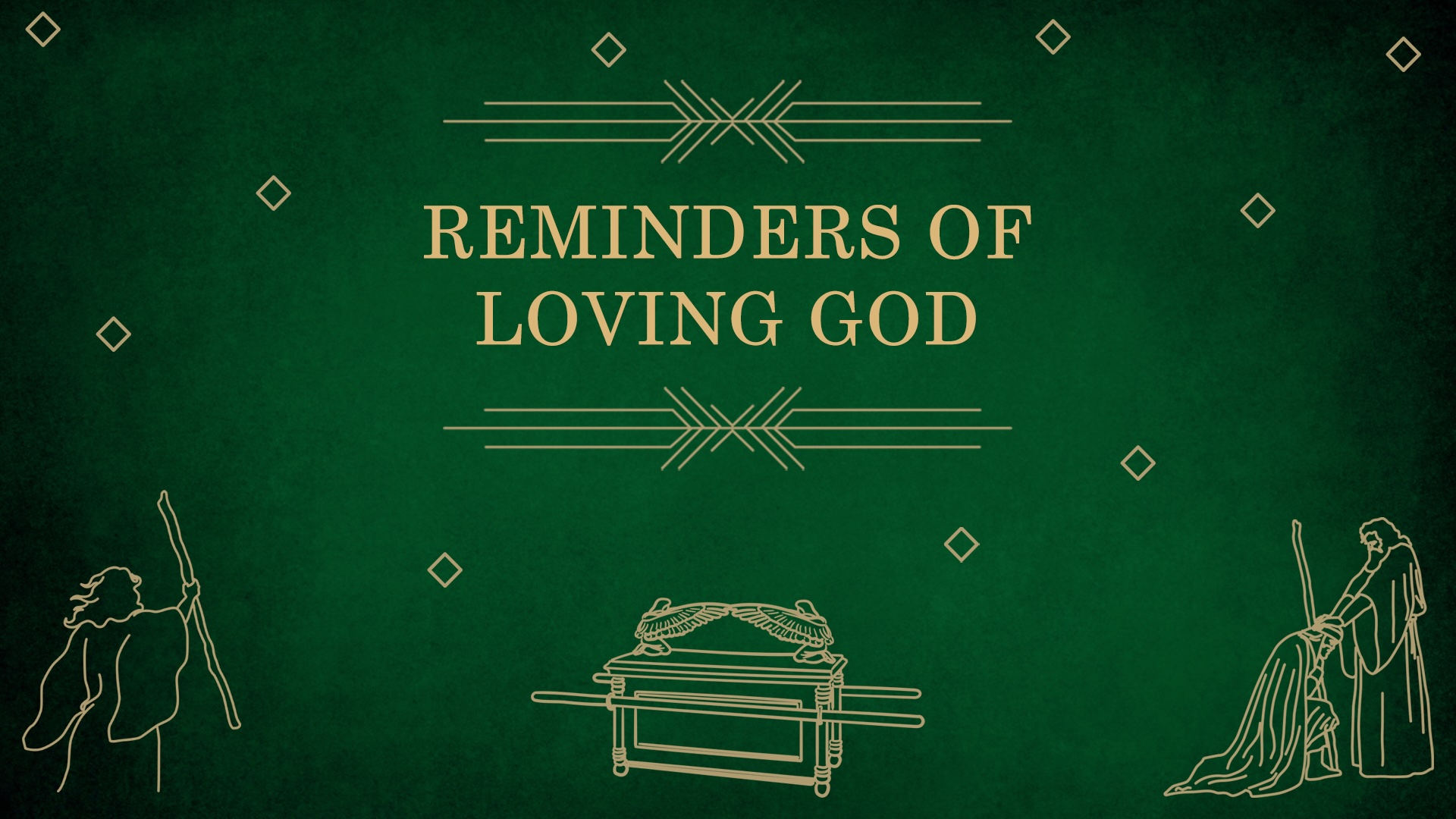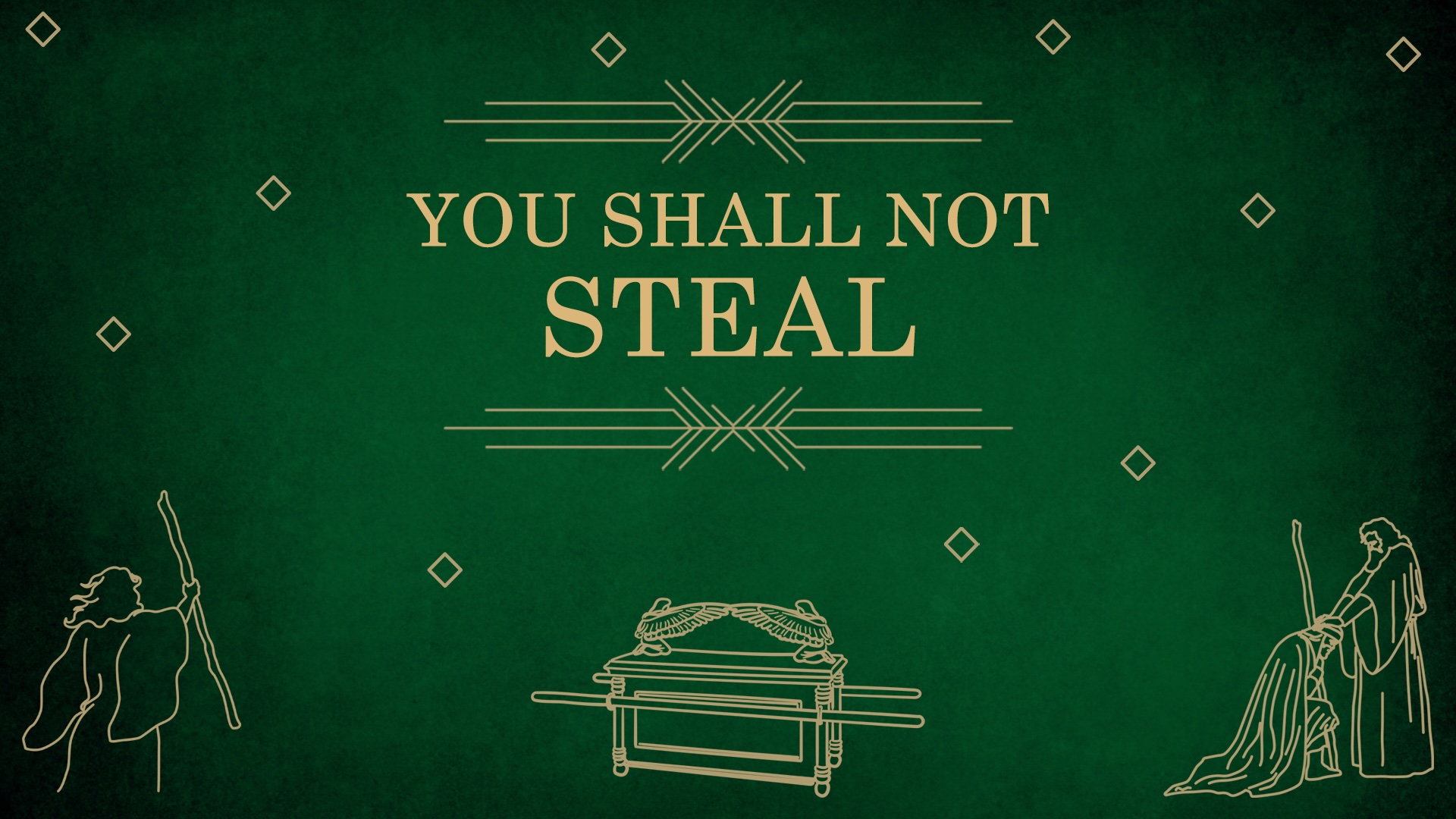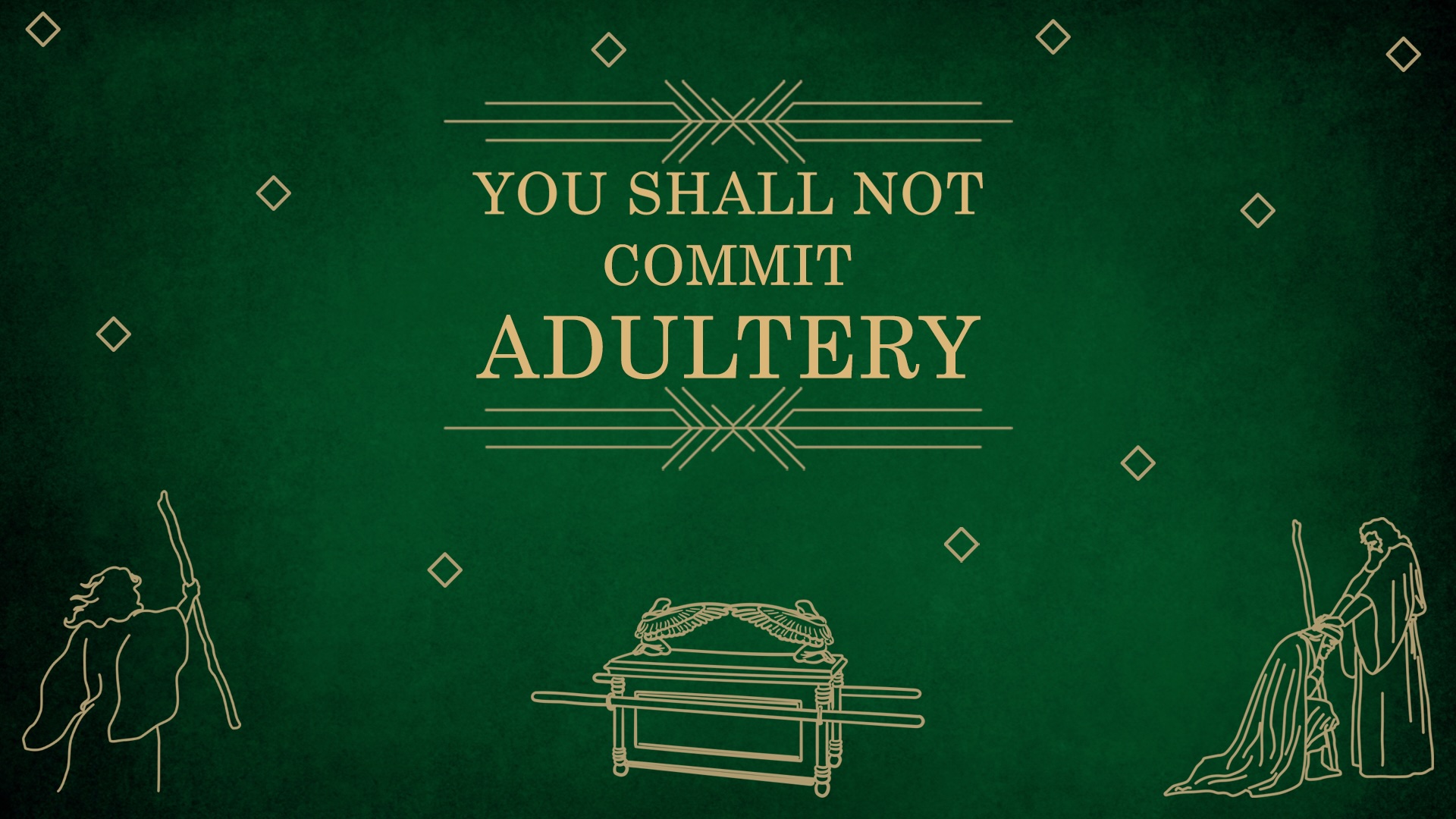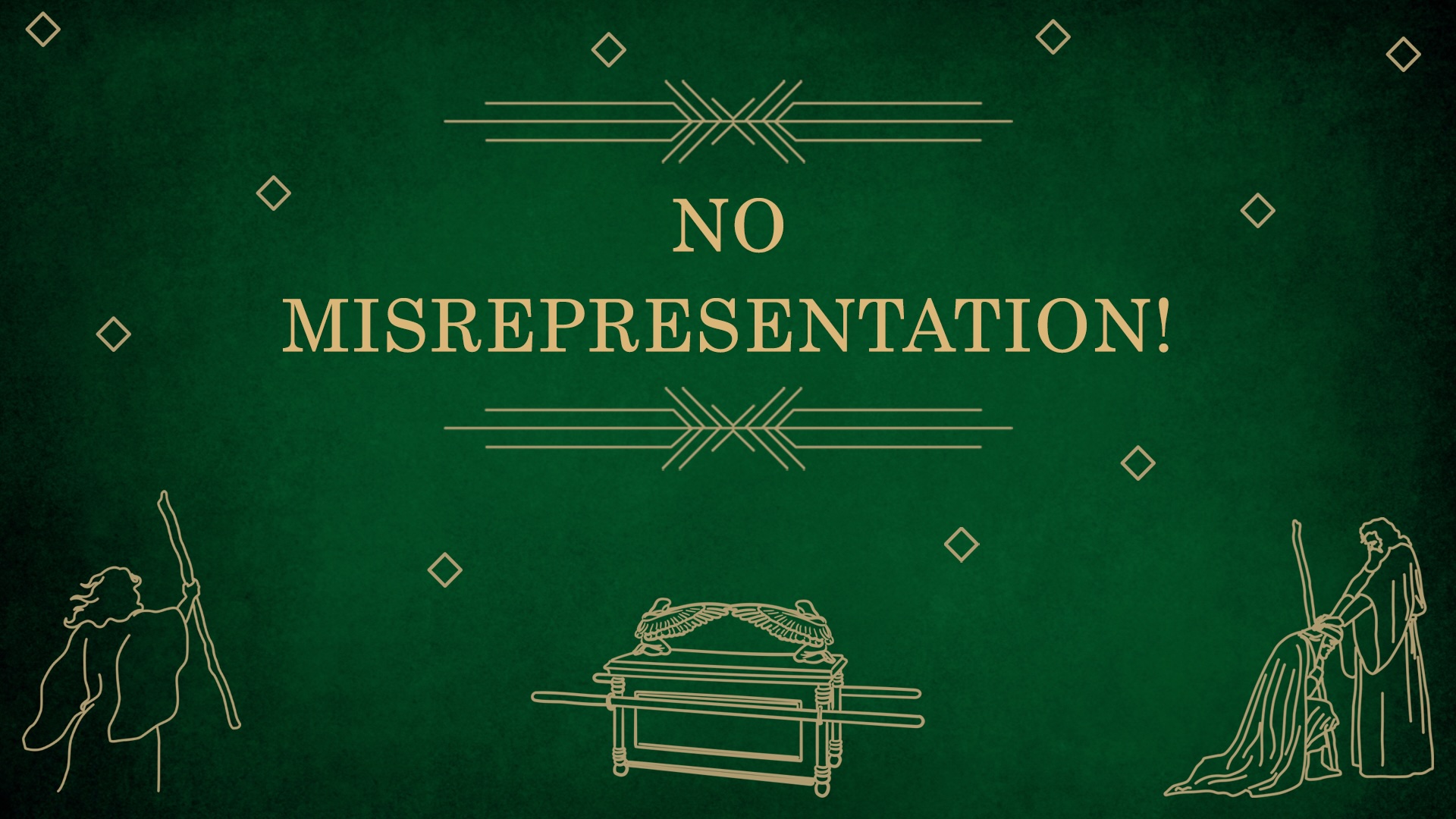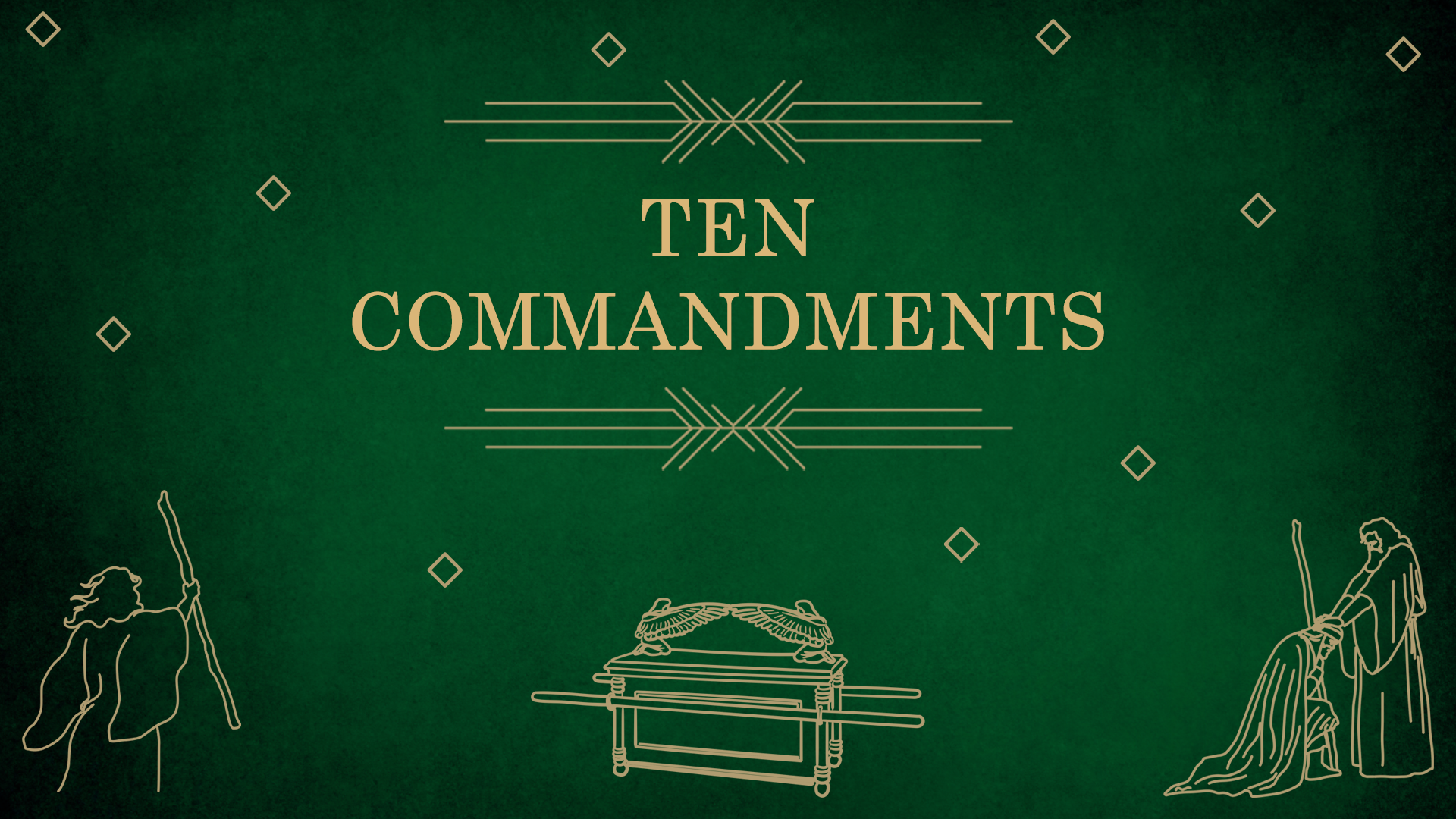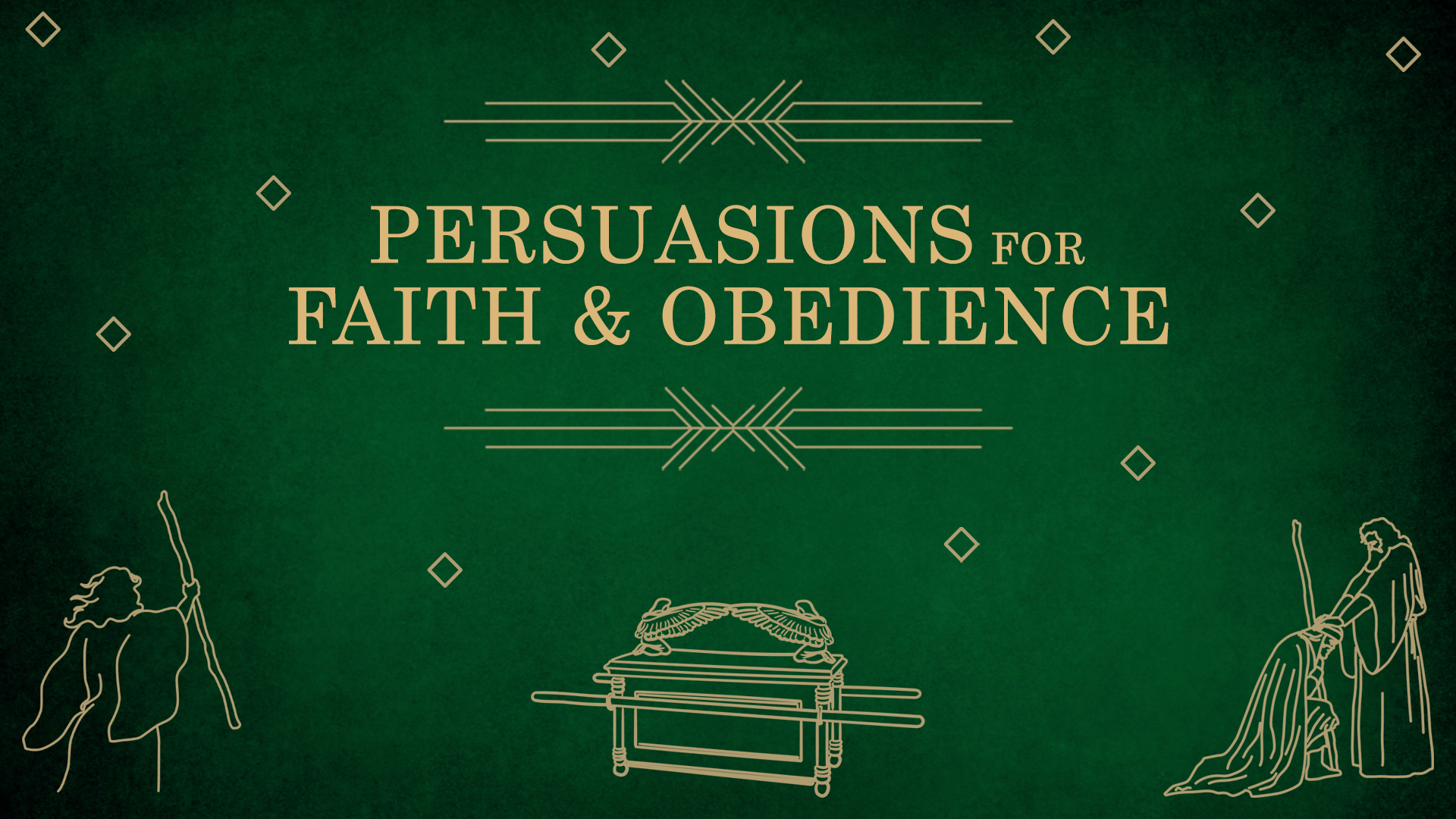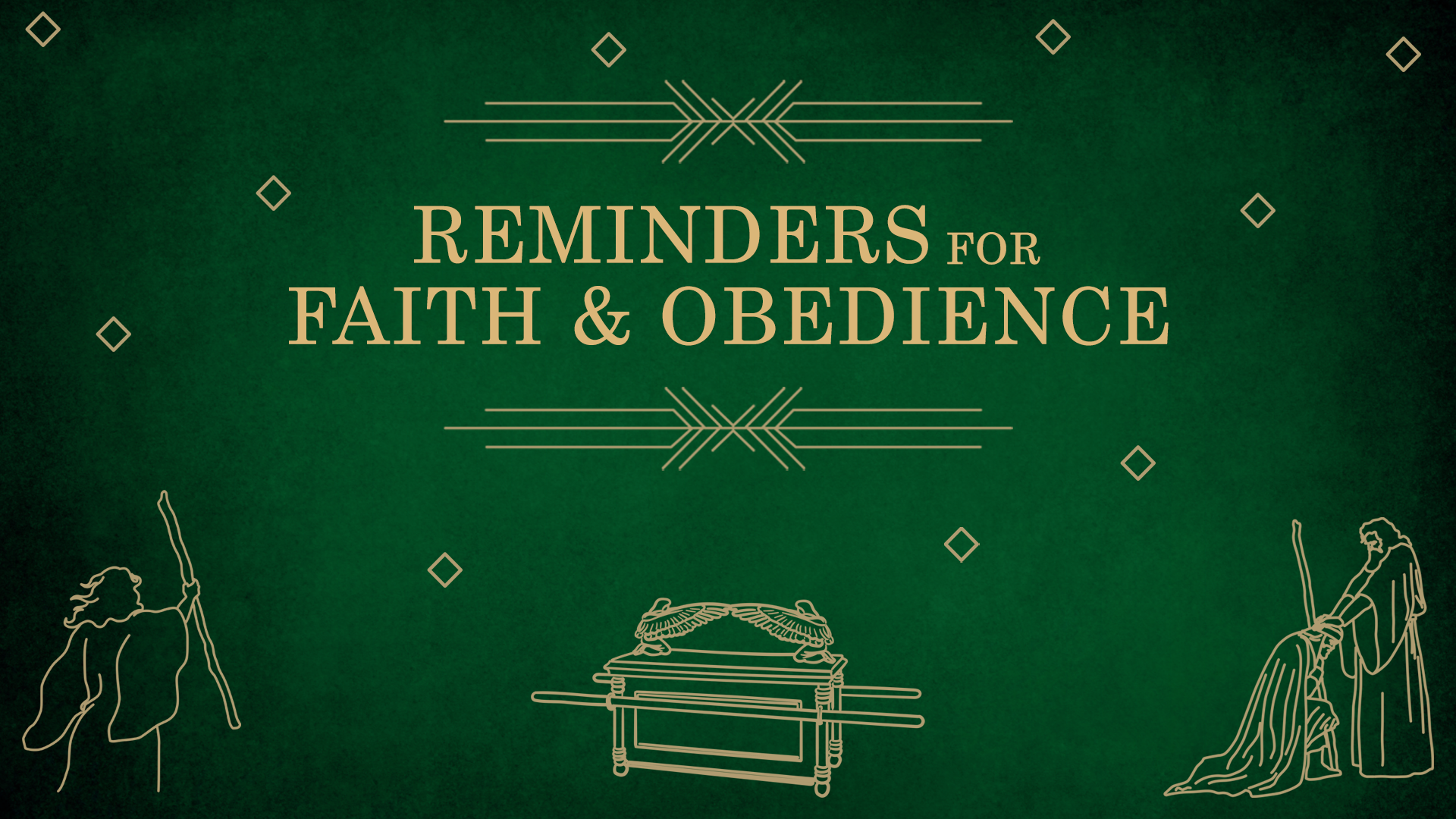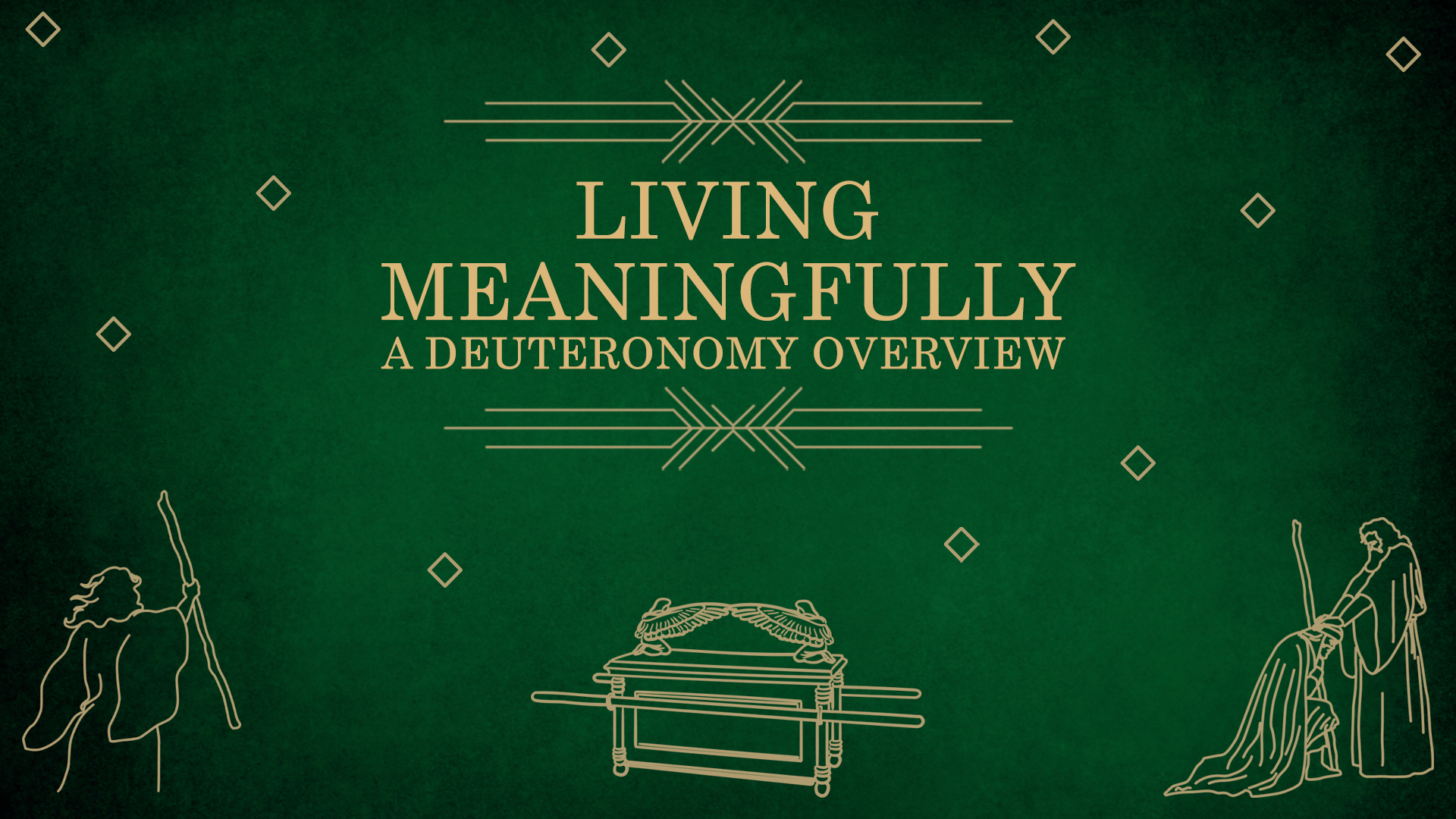Overview
Overview
In 1977, Mr. Lee Kuan Yew called Singaporeans “champion grumblers,” a trait still true today and reflective of a universal human and sin issue. In Numbers 11, Israel’s complaints after a spiritual high showed their scorn for God’s provisions, straining Moses and provoking God’s wrath, resulting in judgment.
From this story we learn about.
Cause.
Complaining stems from a sinful, distrustful heart that lacks reverence for God. Like a lemon producing juice when squeezed, a sinful heart yields complaints under life’s pressures.
Cure.
A heart transplant, not a mouth transplant, is needed to cure complaints. Only a changed heart can produce sweetness. Ezekiel 36:26-27 promises a new heart from God. Christianity begins with humbling oneself before God for His cleansing and transformation. With this new heart, we can overcome a complaining spirit.
Christ.
Israel failed as God’s son, but Jesus triumphed, fully submitting to God’s will without complaint. He is our example of obedience, our atonement for sin, and the proof of God’s love, showing He works for our ultimate good.
Find out what this all means and more, and may this message lead you to greater intimacy with God!
Transcript
Transcript
Introduction – Numbers 11
[00:42]
[01:49] We’re looking at Numbers chapter 11, just one chapter. I think this is a relief for many of you because we have been covering several chapters at one go but just one today.
Complaining as a National Pastime
In 1977, our founding Prime Minister said in his parliamentary speech describing the Singaporean, he said, “You know the Singaporean. He is a hardworking, industrious, rugged individual. Or we would not have made the grade. But let us also recognize that he is a champion grumbler.” Our founding Prime Minister said in 1977 that Singaporeans are very good at complaining, at murmuring. Fast forward to about 50 years today, I think things have not changed very much. We are still a very complaining people. I am a complaining person. I grew up complaining about the weather, about the bus, about my teachers, about exams, about homework. I complain about anything and everyone around me, and I think Singaporeans are very much so as well. We often joke that complaining is one of our national favourite pastimes.
Complaining in Modern Society
Now, when we talk about complaining, I’m not talking in this sermon about that good, helpful, constructive feedback to help people change. I’m not talking about that, but instead we are referring to this negative, unhappy, venting of frustrations, discontentment and dissatisfaction. Somewhat like how a child would throw a tantrum and pout, and sulk especially when the food is not to his liking. Why always vegetables?! And you complain and you complain, and you complain, or maybe when a kid is not allowed to play his computer game, he complains, “I am so bored!”. Well, it’s not just kids who complain. We adults complain, especially here in Singapore, we complain whenever the MRT breaks down and it’s not working. We complain when we drive past an ERP [Electronic Road Pricing] gantry and… Tuuut… Whaa…cost money again. Or we don’t just complain about our country, we complain about our neighbours and especially with the VEP [Vehicle Entry Permit] thing coming up. We complain how inconvenient it is, how inefficient the systems are. We complain about everything. We complain about traffic jam in CTE [Central Expressway], PIE [Pan Island Expressway]. We complain about long queues. We complain about flooding. We complain about food and how expensive it is right now to eat anything. We complain therefore about our government. We complain also about our employers, our boss. We also complain about our husbands and our wives. Why can’t my wife do this? Why can’t my husband be more like that? We are a people who love to complain. We are champion grumblers. I think our Prime Minister, founding Prime Minister is not very wrong, even after some 40-50 years. But complaining is not just a Singaporean problem. It is a human problem. I think people everywhere at all times are prone to complaining. So, does the Bible teach us, show us anything about complaining? Well, you bet. What’s wrong with complaining, you may ask. So what if I complain? Everybody complains. Why make a mountain out of a mole hill? What causes complaints? Why do you complain? And if you think you are a complainer and you don’t want to be a complainer, how can I be delivered or cured from this disease of complaint? Does the Bible reveal these truths to me and to us? Well, certainly.
Complain, Complain, Complain
Today we come to Numbers chapter 11 and we’re going to see a couple of stories here about complaining and so, I’ve simply entitled this sermon, “Complain, Complain, Complain”. All right, so you know that this is a sermon about complaining and I’m going to move through the story in a very quick fashion, so that I can settle on some applicatory thoughts for you and for me.
1. Swiftness
All right, so first of all, in this story, let’s notice the swiftness with which they complain. How quickly they complain? It says, “And the people complained in the hearing of the LORD about their misfortunes…” [Number 11:1]. The first word is significant “And” because this connects with chapters one to 10 as we have studied in the past few weeks. Chapters one to 10 reveal the preparations that are needed for Israel to conquer the promised land of Canaan. It’s spiritual preparations, the lessons they need to learn. And so, we read about how Israel would dedicate offerings to God and how they would keep the Passover. You could say chapters one to 10 marks a kind of spiritual high point for the nation but soon after those things happened, they set off on a journey and just three days later, here in Numbers 11, we read that the people will complain. They murmur against God, very, very quickly. They complain about some misfortune, we are not told exactly what that misfortune is. Is it food? Is it water? Is it some kind of disease? We are not told but they just complain and this comes to the hearing of the LORD. In other words, God notices it, God knows it. It is important for us to see that this is not the first time Israel complained against God. They complained three days after they crossed the Red Sea. They were thirsty, they came to this place where there was water but when they drank it, it was unpleasant and they complained at the waters of Mara. It’s bitter, it’s unpleasant, it’s not portable. They complained against God. And then later on, in Exodus 16, they complained against God because they had no food to eat. So now in Numbers 11, they complain again at Taberah and soon as we read verse five onwards, they will complain at Kibroth-hattaavah, where they would complain about meat or the lack of meat. They say, “We want to eat meat!” So, the people of Israel were a people who keep complaining, complaining, complaining.
Sinful Heart
You say, why? Why does God give us a snapshot, a portrait of a people who keep complaining? Why? Because people of Israel are people of sin. The reason why they would so quickly complain against God is because this is a manifestation of their hearts. They were a sinful people. That’s the commentary given by Psalm 78, the psalmist says “[Yet] they sinned still more against him, rebelling against the Most High in the desert. They tested God in their heart by demanding the food they craved.” [Psalm 78:17-18]. The problem with Israel is not their mouths. The problem with Israel is their hearts. They quickly complain against God after a spiritual high point because their hearts were inherently sinful, unbelieving, evil and wicked. So, let’s note the swiftness of their rebellion, of their complaints against God because their hearts will turn against him.
2. Seriousness
Numbers 11:1-3
Secondly, let us note the seriousness of their complaints, now… we, in general, don’t think very much about complaining, isn’t it? We think it’s quite okay. If someone commits murder, we say that’s terrible. When someone commits adultery, we think that’s terrible. But when someone complains, we kind of laugh at it, we kind of joke about it, we kind of accept it because we say, everybody does it anyway. What’s wrong with complaining? Well, the problem is that God is holy, He hears and knows all things and He hates sin. So here we see the seriousness with which God deals with complaining. He says or the Bible says, “[…and] when the LORD heard it, his anger was kindled, and the fire of the LORD burned among them and consumed some outlying parts…” [Number 11:1]. And it was because Moses prayed to the LORD that the fire burned, burnt down or died down. And they then called this place, Taberah, because the fire of the LORD burned among them. Taberah means burning. So, we should not trivialize complaining. We should not think like the world, it’s okay to complain. It’s our favourite pastime; everybody loves to do it. It should be quite acceptable in the church, isn’t it? The answer [is] no because God treats this seriously.
Jude 14-16
But let’s move on to Jude14 and verse 16 where it tells us, … I’m going to summarize these verses in these two lines but it’s actually longer, just to let you see that when the Lord comes, He will judge the world and amongst those who He will judge will be people who are grumblers and discontented people, the malcontents. [11:48] So, you and I would stand before God one day and you say, “I’m quite all right. I don’t kill, I don’t murder. I am faithful to my wife. Surely God would let me into heaven.” Well, if you are a grumbler and who isn’t. You’ll be judged for your sin so this is serious.
3. Scorn
Number 11:4-6
But let’s move on from seriousness to now, the scorn. We read “Now the rabble…” among them “that was among them had a strong craving. And the people of Israel also wept again and said, ‘Oh, that we had meat to eat!’” [Number 11:4]. So, the first thing I’d like us to see is “the rabble”, the word “rabble” here means a gathering of people. Now, who are these people? It might be the mixed multitude which is the non-Israelites who joined Israel when they performed the Exodus, when they came out of Egypt. So, there was a group of people who are not like the people of Israel because it seems to be contrasted with the people of Israel whom they will influence. The rabble here, the gathering of people here had a strong craving. They craved for meat to eat. They want to jiak bak [eat meat in Hokkien]. Whatever they eating is not good enough for them. They say, “I want meat to eat”, and what they crave was also kind of what the people of Israel craved. And so together, they wept and they complained and they said, “Oh, that we had meat to eat!” because they remarked, “We remember the fish we ate in Egypt that cost nothing, the cucumbers, the melons, the leeks, the onions and the garlic.” [Number 11:5]. Oh, we still remember the fish stew. Oh, I wish we could eat that again. “But now our strength is dried up, …” whatever God is giving to us, it’s useless. It doesn’t make us full. We are weak, “…and there is nothing at all but this manna to look at.” [Number 11:6]. They despise the manna that is given to them. They don’t like the menu. They say, God, what kind of food is this? What kind of stuff are we having? We want the fish, the onions, the leeks, the garlic.
Number 11:10
And so, in verse 10, we read “Moses heard the people weeping…” Now, this is…this is really drama. I mean, when you go to a restaurant, you can’t get what you [want to] eat, you just “Aiya, tsk…” at the most you… “Tsk, like that lah”, but for them is… *wailing loudly!!!*. They cry, they weep, they were really dramatic about this. Why can’t I have my fish? “And the anger of the LORD blazed hotly,” [Number 11:10]. Why was God angry with them? Actually, if you think about it, it’s very serious because these people despised the manna that God gives them. And in effect, by their complaints, they despise God Himself. Why do they despise God? Because by their weeping and their complaining, they are saying that Pharaoh the Slave-master of Egypt is a better provider than the God of Israel who saved them.
Someone wisely said that “A complaining tongue reveals an ungrateful heart.” Why do you complain because you are not grateful. You complain about your job because you are not grateful for your job that God has given to you. You complain about the country because you are not grateful to God who established the authorities in our country. You complain about your leaders, your boss, your husband, your wife. You complain about your lot in life. You complain about your sickness. You complain about your inconveniences. Because the tongue merely expresses what is in the heart that you don’t esteem what God has given you as good and helpful, and merciful, but you’re filled with that sense of self entitlement and pride that says, I deserve better. God is not good to me. He doesn’t care for me. He doesn’t really love me. He’s not really sovereign. He’s not really wise. You despise God. You scorn God. So let me ask you today, what kind of manna has God given to you that you’re not happy about? That you say, this is nothing to look at, my strength is dried up, this does not meet my needs. How are we despising him in our lives and how we need to turn from such unworthy thoughts about God? So that’s the scorn we see in Israel.
4. Strain
We see number four that these complaints are a strain. It became a huge burden. You see, nobody likes to live with people who are always complaining, right? You don’t like a naggy person. You don’t like someone who is always harping at you. You don’t like people who are negative all the time, speaking evil about others. We all understand that because “Complaining is draining!” One of the hardest things a leader will have to deal with is people who are always complaining. Other than that, actually the job is not that difficult but it’s the people and their complaints that wear you down.
Number 11:10-15
And that’s what happened to Moses, Moses heard all these complaints and what happens to him? He became very displeased. He’s buay song [not happy in Singlish], we say… in a… if you give me to translate, I’ll say, “And Moses become buay song [not happy in Singlish].” He was upset. Why? This is what he said, “Why, Lord, have you dealt ill with your servant? And why have I not found favor in your sight, that you lay the burden of all this people on me? Did I conceive all this people? Did I give them birth, that you should say to me, ‘Carry them in your bosom, as a nurse carries a nursing child,’ to the land that you swore to give to their fathers? Where am I to get meat to feed all this people? For they weep before me [and] saying, ‘Give us meat, that we may eat.’ I am not able to carry all these people alone; the burden is too heavy for me.” If you will treat me like this, kill me at once, …” Wǒ sǐ gèng hǎo lā [我死更好啦 – better to die in Chinese]. Let me die! “… if I find favor in your sight, that I may not see my wretchedness.” [Number 11:11-15]. Now, Moses was displeased, he’s obviously also complaining, he’s throwing a tantrum like a little boy, even though he’s not 80 years old. Can you imagine 80 plus year old man just being petulant about things? But that’s what is happening to him because the people’s complaints have absolutely worn him down too. Nobody likes to be with someone who is complaining.
A story is told of a farmer. He has a wife who is very naggy and sometimes he cannot take it. He will go out to the field to plough with his donkey. So, one day, his wife wanted to kind of make amends and so prepared a nice meal, and would look for him in a field when he’s ploughing with the donkey. But when he saw… when she saw him, there’s something he’s not… she’s not happy about and she started to nag and nag and nag again. All of a sudden, the donkey kicked up its hind legs and whack the woman on the back of her head and she died. At the funeral, the pastor came and noticed something very interesting, whenever a lady would come by the coffin, she would or the husband would listen to her for about a minute and will begin to nod his head. But whenever it’s a man who comes by the casket, he will speak for about a minute and the husband will shake his head. It’s very consistent. Every time is a woman, he will nod his head. Every time is a man, he will shake his head. So, the pastor asked, “What’s wrong? Why do you do that? Why do you nod and shake your head?” And the husband would say, “Whenever a woman comes, she will always say how nice my wife was and I will nod my head.” And what about a man? “They will always ask me, is the donkey for sale?”. [20:44] If you don’t get it, can watch the sermon again and find out what it means.
Number 11:16-17
It’s not easy. You don’t want to live with a complaining husband or wife or mother-in-law. You don’t want that, but Moses had that, and he cannot take it anymore. But God is very merciful to Moses, I must say, God did not sentence Moses to anything punitive. But God actually said, “Moses, you go get 70 men, 70 elders, gather them before me and I will take that same spirit in you and put it on them that they will also share that burden.” Well, I suppose here we just simply note the strain that complaining people can place on others, especially the leaders.
5. Sentence
Number 11:18-20
But let me hurry on to finally, in this story, in this movement, the sentence that God will pronounce upon the people of Israel the judgment that he will render. So, we see that God said in verse 18, “…tomorrow, you shall eat meat….” Now this sounds like a gift. This doesn’t sound like a judgment. This sounds like God is kind of caving into their demands or capitulating to their tantrums. In fact, it’s so good that God says, “You shall not eat just one day, …” Wha one day very shiok already lah, but you eat not two days, not five days, not 10 days but one whole month. You said, “Wow! That’s fantastic!” Until you read, He goes on to say, “…until it comes out at your nostrils and becomes loathsome…” Have you been to a buffet? Where you eat… Jiak ga ai tor [Eat till want to vomit in Hokkien]. You eat until you are so bloated and you want to vomit. You just want to roll around in bed, right? So, God says you’re going to eat until it’s going to… you’re going to puke it out. Now what meat is God going to provide? Steak? Pork? Venison? Well, God is going to provide quail. Quail, I’m not sure if it looks like this because I’m not very exact about the species that is referred to as quails, but certainly not chickens, not ducks, but a certain kind of bird, and they may barbecue the quail. Not bad, looks good.
Numbers 11:31-34
How is God going to bring so many quails to them? Well, we’re going to read that God is going to send a strong wind and the wind is going to blow all the quails from the sea, and they will all perhaps die and land all around Israel that they may pick them up and eat them. So, we read in specifics, there is “[Then] a wind from the Lord” that “sprang up, [and it] brought quail from the sea [and let them] fall beside the camp,” and this is “about a day’s journey on this side and a day’s journey on the other side, …” [Numbers 11:31] this is describing the radius of which the quails will fall. Now, a day’s journey is long, can be several kilometres, so there will be lots of quails all around them and it will be about “…two cubits above the ground.” How much is a cubit? 44 centimetres, so about a meter tall of dead quails all around for you, it’s really buffet. Have you dreamt about swimming in food? This is literally what’s going to happen to them. They’re going to swim in quails that they can eat. “And the people rose all [that] day and all night and all the next day, and gathered the quail…” [Number 11:32] I mean, this is shiok man [delight or satisfaction in Singlish], get as much as you want and those who… the least they got for every single person is 10 Homer Simpsons…no… no…10 homers. How much is a homer? A homer is about the size of a donkey. So, they gathered 10 donkeys volume of quails, eat until you shiok [delight or satisfaction in Singlish]. But this is the problem when they were sinking their teeth into the meat “…before it was consumed, … the anger of the Lord was kindled against the people, and the Lord struck down the people with a very great plague.” [Numbers 11:33] So, the place would be called Kibroth-hattaavah which means the grave of craving. This is where they craved and where they would die.
Psalm 106:15
And so, we read in the Psalms, the psalmist again gives a commentary of this episode saying, “he gave them what they asked, …”. They wanted meat, I gave you meat. Not because God capitulated to their demands, not because God was caving it, but because God shows that I can if I want to, there’s no problem with me. But because you ask this out of discontent, because you ask this because of, out of unbelief. You ask this because you did not esteem me. He would also send a wasting disease among them to judge their sin.
1 Corinthians 10:6, 10, 12
Now all this is written not just as a story for us to listen to but this is given as a warning for you and for me, because First Corinthians 10 tells us that these things, in particular, the wilderness journey, “[Now] these things took place as examples for us, …” [1 Corinthains 10:6]. And when Paul wrote First Corinthians to the church at Corinth, his writing to people in church who are externally at least identified as Christians, and Paul is saying, you know what happened to Israel? They who seem to look like the people of God. They complain against God. They murmur against God. They desired evil. Their hearts were filled with unbelief. And you should take note that you should not grumble, otherwise you will also be “…destroyed by the destroyer.” [1 Corinthains 10:10]. In other words, this story is an example or warning to people who profess faith in Jesus Christ but whose hearts are not His, who are still filled with evil and unbelief, and cravings that despise God. And if that is your regular pattern of life, “…take heed lest you fall.” [1 Corinthians 10:12]. Do not be complacent. Do not assume. Do not allow yourself to say it’s just a little complaint. I can complain to heaven. I can complain to the day I die and I’m still God’s child. No… because your complaint reveals that your heart was never really His. So, we come to this story in Numbers about complain, complain, complain but it is not just a story. We are…we are supposed to learn lessons.
1. The Cause
So, let me switch gears to you and me, what are some of the takeaways? What are some of the key things we need to bring home? I’d like us to look at, at least three things. Number one, I’d like us to consider, why, why do you and I complain? Just bring it back down, distil from what we learn in Numbers, in the rest of the Bible, why do you and I complain? Is it a problem of the mouth? Is that the source? Is that the problem? No, because if you take away the mouth, you’ll still complain in the heart, you will. So, we learn that the heart of the issue is that, this is an issue of the heart, for out of the heart, abundance of heart, a man speaks. So, we see that the problem is the heart. And what’s the problem with the heart? The heart thinks this about God, the heart is biased against God. The heart despises God. That’s the problem with the human heart. It is ruined. It is corrupted. It is programmed by sin to be against God. So inherently, we say God cannot be trusted. We think that God is not giving me the best. He’s not really loving. He’s not really good to me. He is holding back something from me. He’s giving me something inferior. He is not ultimately for my good because we think, somehow, He is not strong enough. He is not wise enough. He is not loving enough… enough… He is not sovereign enough. That is why I end up this way. That is why my husband is like this. That is why my wife is like that. That is why my job is this. That is why I am struggling financially. That’s why I’m given this sickness because God is somehow not wise, not loving, not powerful, not sovereign enough. And therefore, I do not trust Him. I don’t believe in Him because the heart, after Adam had sinned, is now corrupted with unbelief.
Hebrews 3:10-12
That’s the verdict of the Hebrews author in Hebrews chapter three, when he said, “They always go astray in their hearts; …” It’s not about the mouth; it’s about the heart. They’ve gone astray in their hearts. And he goes on to say in verse 12, “Take care, brothers, lest there be in any of you an evil, unbelieving heart” What’s the problem of the hearts of the Israelites? It was evil and unbelieving. And what about our hearts? The problem is that it can be evil and unbelieving. So why did Israel keep sinning in complaints? They can’t help it. That’s their heart.
[30:44] I thought about this last night and so went to Cold Storage to buy this [at] 11 plus pm yesterday, and I hope it gives you a picture. Let me ask you, if I squeeze this what will come out? Nothing. Okay lah… the correct answer is nothing because I’m not so strong. But imagine if I cut this in half and I squeeze it, what will come out? Lemon juice. No matter how hard I squeeze, it will always be lemon juice. Can it come out watermelon juice? No way because this is a lemon, a lemon will always come out with lemon juice. Wha, you know the theory already what? You’re so smart, you got it. So, if this is my heart and I meet with the provocations of life, not enough money, my husband irritates me, my boss is unreasonable. He gives a tight squeeze, what will come out? Complain? No, you squeeze it, lemon lah, lemon will come out, the sour juice will come out and sin will come out. Why? Because the heart is sinful. He can’t help it. That’s natural. That’s why Israel kept sinning and complaining because their hearts are filled with lemon juice. There’s no way you can change that. $1 [for] one lemon, done its job.
2. The Cure
So, if that is the cause, what is the cure? How can I stop complaining? Well, some of us may say just… just go and tape his mouth lah, sew it up lah. You know, that’s what my mother will say, “Talk so much, sew up your mouth.” Well, I tell you if you tape up the person’s mouth, the person can still complain because he can do so in a heart. So, what is the cure? The cure is not to get a mouth transplant. The cure is to get a heart transplant. So, I was at Cold Storage yesterday, bought the lemon and thought… Aiya, got another one lah, this is a [an]?… Orange. Actually, I wanted to get orange but orange [costs] $2.50, then this one, grapefruit [costs] $1.70, so I got grapefruit but, but, but someone in the first service tell me, “Pastor, your illustration doesn’t work lah because grapefruit is bitter.” But never mind, also some sweetness, right? A bit sweet lah, a bit sweet. No? Okay, okay, this is orange, orange, orange. Wah lao [frustration in Singlish], so difficult one y’all. Okay, just a sweet fruit, all right. So, if you want something sweet to come out of you, what to do? You got to take away the lemon heart and put in the orh ling [orange in Singlish], orange heart, so that when it is squeezed something sweet comes out. That’s the only way, isn’t it? You can’t reform a person. It’s not moral education. It’s not keeping the person shut. It is a change of heart that is needed. And you know, that’s the amazing thing. Okay, $2.70, done.
Ezekiel 36:26-27
And that’s what is needed and that’s what the Bible talks about, so God says in Ezekiel 36, now I know many of us, we avoid a book like Ezekiel because we think it’s too cheem [difficult to understand in Singlish], too complex. Actually, Ezekiel is not that complex if you go back and read it. It’s actually very hopeful. It’s filled with wonderful promises from God. And one of the great promises in the entire Bible is God saying, “[And] I will give you a new heart, …I will remove the heart of stone…” I will “…give you a heart of flesh.” I will sprinkle clean water. This is a glorious promise because, you see, Christianity is not about you and I cleaning up our act and say, “God, now I am worthy for you to be saved”. None of us can ever do that. None of us can clean ourselves to the degree that we are perfect and which obligates God to save or accept us. No, Christianity is the complete opposite. Christianity is saying we are so rotten and corrupt we can only have lemon juice in our lives. But God is so good that he will send His Son to die on the cross, pay for our sins and give us new hearts. He will be that great cardiothoracic surgeon will remove the heart of stone and replace it with the heart of flesh. So that now finally, finally, it will be orange juice, gracious words that come out of our lips, wonderful thoughts of love that floods our minds. Not only that, he also tells us, “[And] I will put my Spirit within you, and cause you to walk in my statutes and be careful to obey my rules.” You see, Christianity is not about you changing yourself but it’s about God changing you when you’re willing to humble yourself, turn from your sin and look to Jesus to save you and cleanse you. And if you really come to him like this, he gives you a new heart. In the words of the Bible, you are born again. You are a new creation. All things are passed away, all things have become new. You now have a new desire. You now have a new capacity. The Holy Spirit lives in you, and now because you understand God’s love for you, you obey Him and you walk in righteousness. You are not a complaining person; you won’t want to be.
Philippians 2:14-15
And that’s why Paul would go on to tell us in some of his episodes and his letters saying, “Do all things without grumbling or disputing, …children of God without blemish, …” that “…you may shine as light in the world” [Philippians 2:14-15]. He says this because he has first established the gospel in chapter one, because of what Christ has done for you as children of God, because you are born again, because you are a new creation, don’t grumble or murmur anymore. Live out that light of the gospel. In your office where everybody complains. In your condo[minium] where everybody complains. In your family when everybody complains. In Singapore where everybody complains. And you don’t complain… [Hand actions in the air] [38:02] Wǒ bù shì zài tiào wǔ a [我不是在跳舞啊 – I am not dancing in Chinese] You shine! You grab attention even though you don’t say a word. That’s what… what it’s saying here that the children of God shine not because of what they say, but because of what they do not say. That’s how you’re marked out.
Colossians 4:5-6
I think it’s the same idea in Colossians, having explained the indicatives which is a word that means all that God has done for the people of God, because of all that God has done for the people of God, now this is how you respond. You understand the gospel. You understand His love. So now let your speech always be gracious. It is always what God has done first then we respond. It’s not that we love Him first, He loved us first. And when you are born again, when you have the new heart, when you understand the gospel, “… let your speech always be gracious, seasoned with salt,”.
1 Thessalonians 5:18
And then we read also in First Thessalonians, “Give thanks in all circumstances; …”. Well, we all stumble and fail. I know that many of you are believers, but like me, I think we all still complain. Complain when it’s raining, complain when the queue is very long, complain when things are very expensive, complain when people don’t meet up to our standards. But let us be reminded today, God has given us a new heart. Let us be reminded by the gospel how much He loved us, and by God’s grace, let us seek to obey. Give thanks in all circumstances, amazing command, amazing will of God. And that’s all possible only if God has first given to us a new heart.
3. The Christ
But can I end off finally by looking not just at Israel, but ourselves or ourselves, but ultimately to our Savior, the Lord Jesus Christ. Israel was in a good position but they began to complain. How about Jesus? Jesus was in the worst circumstance. In the wilderness, he fasted for 40 days and 40 nights. Can you imagine fasting for four hours? Some of us already cannot, get very grouchy and irritable when we don’t eat for four hours. Have you fasted for four days or 14 days? Try 40 days and that’s what Jesus had to go through but he never uttered a word of complaint.
Matthew 4:3-4
In fact, when the devil came and said, “Hey, why don’t you just turn the stones to bread?” He said, “No, I will not do it. I will live by the Word of God.” That’s in essence what he’s saying. He’s not just… by the way, he’s not just quoting this verse to dispel the devil. He is actually saying what he has been believing and acting upon for the whole 40 days. This is his motto. This is his guiding principle that I will obey the Lord, even though it is difficult.
Matthew 4:6-7
The devil will then tell you [Jesus], “Why don’t you just jump off the pinnacle and prove that you are the Son of God?” He would again respond, quoting the Scriptures in Deuteronomy, “…You shall not put the Lord your God to the test.” [Matthew 4:7].
Matthew 4:9-10
And when the devil says, “Well, if you bow down to me, you can have all the glories of the kingdom. And Jesus would again be saying, “Be gone, Satan!… “You shall worship the Lord your God and Him only shall you serve.” [Matthew 4:10].
The Example of Jesus
Jesus had every reason, humanly speaking, to be complaining. Why do I have to suffer? Why do I have to fast? Why do I have to go to the cross to die? I can have all the glories of the kingdom right here, right now. I don’t like manna. I like the fish and the onions and the garlic and the leeks, but he never did that. He never wavered, he never complained and he was submissive to the will of the Father. And we see that supremely again in the Garden of Gethsemane, not just in the wilderness, but in the Garden of Gethsemane, where he prayed, knowing that he’s going to the cross the next day. If it would be possible, let this cup pass from me. But nevertheless, not as I will but as You will. He was fully yielded to God, not a word of complaint, and our Savior then went to the cross. He went to the cross as an example for you and for me. What does it mean to really trust God and follow in His footsteps? It means that we utter not a word. It means that we do not complain. It means that we trust that God has set for us great joy and glory before us, and this Lord in life is going to ultimately work for our good. It means that as we look to Jesus, he is the Savior to pay for all our sins. I complain. I still complain. I complain quite a lot and I’m thankful that when I fail, Jesus pays it all. He lived that perfect life to shed his blood, to cleanse people like you and me. I don’t take this forgiveness for granted. I want to be a better follower of Jesus. I want to be more contented. I want to grumble less. But when I fail, I thank God, Jesus pays it all. And then finally, friends, you say it’s so hard to believe God is good to me. It’s so hard to believe God is working all things together for my good. I say to you, look at the cross. God commendeth or demonstrates his love toward us, in that while we were yet sinners, Christ died for us. I don’t have to doubt. There is no argument. There’s no other plea. Jesus died for me. It is enough that he did so. Whatever you are going through, don’t judge God by the circumstances but judge God by the cross of Jesus Christ. He loved you and He gave His Son for you.
Closing Prayer
Let’s bow for words of prayer together. Father, we are thankful this morning that from the pages of the Bible, you bring truth to confront us. You peel away the layers of excuse that we have and show us the wickedness, and the depth of sin that is intertwined with all our being. But we thank You today, Jesus Christ lived that perfect life that we cannot live and gave himself up to pay for the sins we cannot pay. Not only that, with his death, he secured the rights for us to receive that new heart. So dear God, I pray you bring men and women today under the conviction of sin and the convincement that Jesus paid it all. May You lead friends, loved ones, to the saving knowledge of Jesus. And I pray for your church too, we will look to the cross, remember Your love, remember Jesus and by the help of your Holy Spirit live a life that will shine as light in a dark and dying world. O Lord, we pray for a people who will be filled with love and joy and peace, the fruit of the Spirit. We pray you will be glorified through us. So, hear our prayers, may we respond to you in obedience, we ask in Jesus’ name. Amen.



